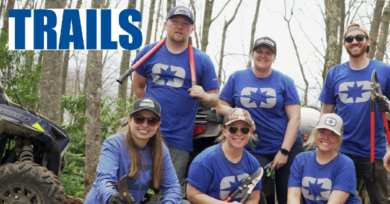Clearwater National Forest settlement approved
A federal court has accepted the settlement agreement that resolves a lawsuit claiming that the Clearwater National Forest illegally closed recommended wilderness areas (RWA) to motorized use. The agreement, between the Forest Service and lawyers for the Idaho State Snowmobile Association and BlueRibbon Coalition, requires the agency to conduct a new analysis and issue a new decision to evaluate “motorized and over snow access management” in the areas. The Forest Service “disputes Plaintiffs’ claims” but acknowledged “that regional issuance of documents described as guidance for forest planning, including planning for RWA management, has led to confusion and misperception regarding the role that such documents serve. …”
The areas in dispute were decades ago recommended for wilderness designation by the Forest Service, but Congress has not acted on these recommendations. The areas have always received motorized use, and more recently mountain bike use, that would be prohibited in formally designated wilderness. Neither the initial ratings nor the present wilderness suitability have been diminished by these uses, and the “wilderness character” of the areas has remained the same under Forest Service evaluations.
The agreement, initially filed in October 2014, contemplated a Forest Service effort to complete the new analysis prior to the start of the 2014-15 snowmobile season. In the absence of a new decision, the agreement provided for management to revert to the 1987 Plan, which would allow snowmobile use. The court did not complete its review of the agreement until the 2014-15 season had largely passed and declined to vacate the challenged plan’s prohibition on motorized access. The court “conditionally approved” the remainder of the agreement, and the Forest Service and recreation groups accepted the court’s interpretation. The agreement also provides for payment of $30,000 toward legal fees incurred by the recreation groups.
“We have learned in decades of litigation that our court system produces imperfect outcomes,” said Sandra Mitchell, public lands director of the Idaho State Snowmobile Association, the lead plaintiff. “We would like to eliminate the effects of what we consider an illegal decision, but getting a new decision is a significant step. Ultimate progress must always occur through the agency, and we hope we have sown seeds toward that outcome here.”




